Ethereum Ecosystem Privacy Use Cases and Project Overview
Ethereum Privacy Use Cases and Project OverviewAuthor: Anna Rose and Will Harborne, ZK Validator founders; Translation: LianGuaicryptonaitive
Overview of Ethereum Privacy Projects
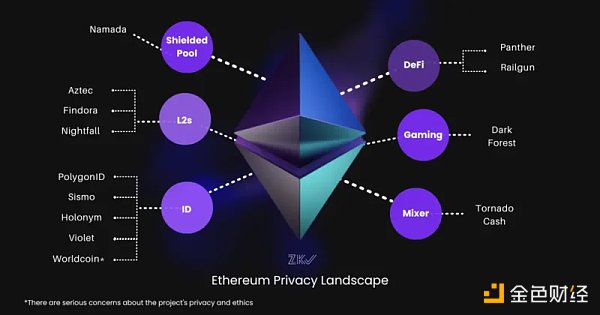
Introduction
During EthCC, ZK Validator founders Anna Rose and Will Harborne gave a speech on the development of privacy protection in Ethereum. This article is a deeper exploration of their speech, delving into the privacy protection ecosystem of the Ethereum network. It highlights the parties involved and the related research that has been published or is about to be released.
Is Privacy the Same as ZK?
Before delving into the Ethereum privacy ecosystem, it is necessary to clarify some terms. Over the past two years, many “ZK” extension solutions have emerged, including Rollups and bridges.
- LianGuai Observation | TVL exceeds 200 million in the first month. Why do both old and new projects love Base chain?
- Optimism Feast is Coming? A Comprehensive Overview of OP Stack Ecological Projects
- Why has RWA suddenly become popular this year? What are the players?
Most of these solutions leverage the succinct properties of zkSNARKs, which allow blockchain to scale but do not provide privacy. Therefore, although “ZK” is used in naming conventions and communication, most extension solutions do not offer privacy protection.
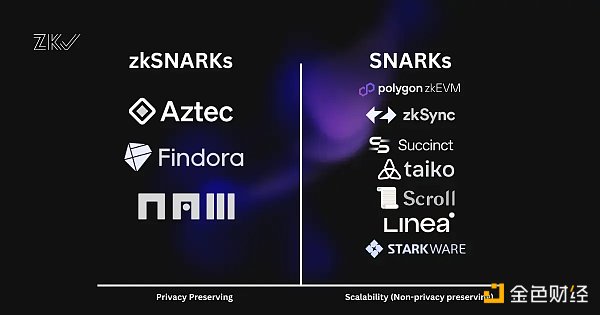 Other privacy protection technologies, such as Trusted Execution Environments (TEEs), Multi-Party Computation (MPC), and Homomorphic Encryption (HE), exist, but zero-knowledge proofs remain at the forefront of privacy protection due to their trustless nature.
Other privacy protection technologies, such as Trusted Execution Environments (TEEs), Multi-Party Computation (MPC), and Homomorphic Encryption (HE), exist, but zero-knowledge proofs remain at the forefront of privacy protection due to their trustless nature.
That being said, we will explore several privacy solutions in the Ethereum ecosystem, including solutions that utilize ZK and others that rely on different technologies.
What are the current privacy use cases on Ethereum?
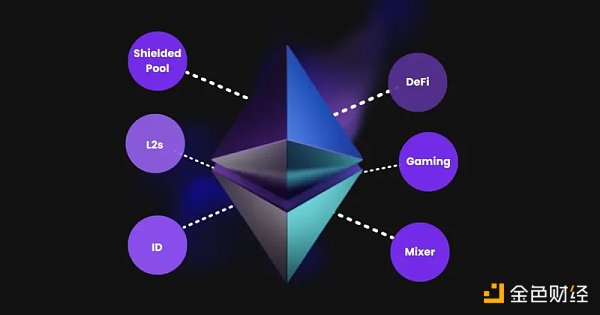 As we all know, the primary use case of blockchain is decentralized finance (DeFi). Meanwhile, the main use case of privacy applications is private transfers. However, in our research, we found that decentralized identity verification is the fastest-growing area in the entire privacy ecosystem of Ethereum.
As we all know, the primary use case of blockchain is decentralized finance (DeFi). Meanwhile, the main use case of privacy applications is private transfers. However, in our research, we found that decentralized identity verification is the fastest-growing area in the entire privacy ecosystem of Ethereum.
Of course, there are other use cases, such as privacy computing, gaming, privacy voting, and ZKML, among others.
Privacy Transfers on Ethereum
In this section, we will discuss projects that focus on ensuring privacy for peer-to-peer transfers. This use case has two categories: mixing services and dApps. Although they have the same purpose, they ensure privacy in different ways.
Mixing Services
In a blockchain environment, mixing services are privacy-enhancing services that can increase the anonymity of transactions. They achieve this by combining multiple cryptocurrency inputs from different users, obscuring and delaying transactions, and then allocating outputs to addresses different from the original address, making it difficult to trace funds on the blockchain and blurring the link between sender and recipient addresses.
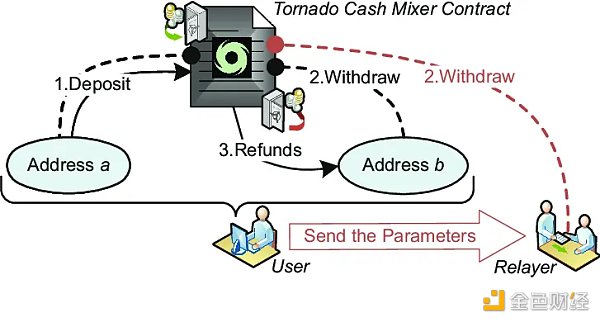 Tornado Cash Mixing Principle
Tornado Cash Mixing Principle
The level of privacy provided by mixing depends on its trust model. Centralized mixing requires users to trust the service operator not to abuse the data, while decentralized mixing uses cryptographic protocols to achieve privacy without relying on a central entity.
Tornado Cash: It is a zkSNARK-based mixing service. However, it has lost its importance due to OFAC sanctions. Currently, there are no other significant mixing services in the Ethereum ecosystem.
Layer 2s
However, alternative solutions for privacy transfers do not require the use of mixing services. In fact, the current trend for implementing privacy transfers is mainly focused on Layer 2 solutions. Here are some Layer 2 solutions that have implemented this use case:
Findora: Findora ZK is a Layer 2 solution for enhanced privacy on Ethereum, leveraging Ethereum for consensus and verification. It uses succinct non-interactive zero-knowledge proofs (SNARKs) in Ethereum smart contracts on Layer 1 to verify state transitions and ensure the correctness of rollups. The Layer 2 ledger provides privacy for payments, similar to Findora OG, and achieves privacy transfers and confidential transaction data by using zero-knowledge proofs in interoperability with Ethereum.
Aztec: This is an upcoming Layer 2 that offers both public and private smart contract execution. Developers can achieve privacy transfers in Layer 2 by using zkSNARKs. Aztec is touted as the first programmable privacy extension on Ethereum. They diverge from the common EVM design with their own programming language Noir, enabling developers to achieve programmable privacy for dApps.
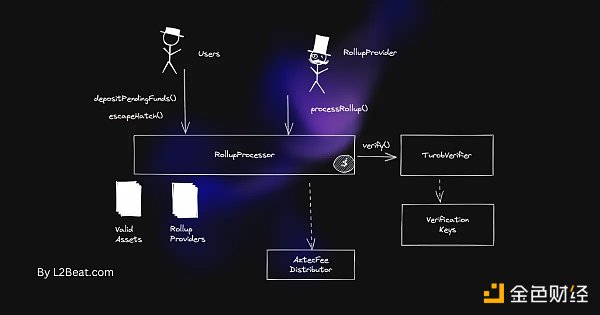
Nightfall: This is a “zk-optimistic rollup” designed in collaboration between Ernst & Young and Polygon, which uses zero-knowledge proofs (ZKPs) to maintain the confidentiality of transaction information, making it suitable for commercial payments, and uses fraud proofs to guarantee correctness.
Privacy Layer 1 (Shielded Pool)
Namada: Namada is a privacy PoS Layer 1 for cross-chain assets. Namada interoperates with the Cosmos chain through IBC and with Ethereum through a trusted minimal bridge. Namada enriches the privacy ecosystem by providing the largest possible unified privacy set across multiple chains and complements the functionality of these chains by providing privacy shielded actions for other chains. All assets share an anonymous set, enhancing privacy protection.
Privacy-Protecting dApps
Firn: It is a protocol based on Zether that enables privacy transfers for deposits, transfers, and withdrawals using privacy-preserving methods.
Nucleo: It is a dApp that provides privacy multi-signature for asset transfers.
Privacy ID
Indeed, there are applications specifically designed to provide identity privacy on Ethereum. All of these applications attempt to address the issue of decentralized online identity while maintaining control and privacy over personal information.
Although there are several more applications using DIDs, the applications that use ZKPs to protect privacy are:
PolygonID: The foundation of this platform is an expressive declaration standard, which has distinct advantages compared to non-fungible tokens (NFTs) and verifiable credentials (VCs), limiting their expressiveness and composability, hindering their applicability. Polygon ID uses the Circom ZK toolkit, which can compile zero-knowledge proof constructions, namely zkSNARKs circuits, reducing complexity and improving efficiency. Polygon ID provides on-chain verification, allowing private and trustless execution of user interactions without relying on intermediaries.
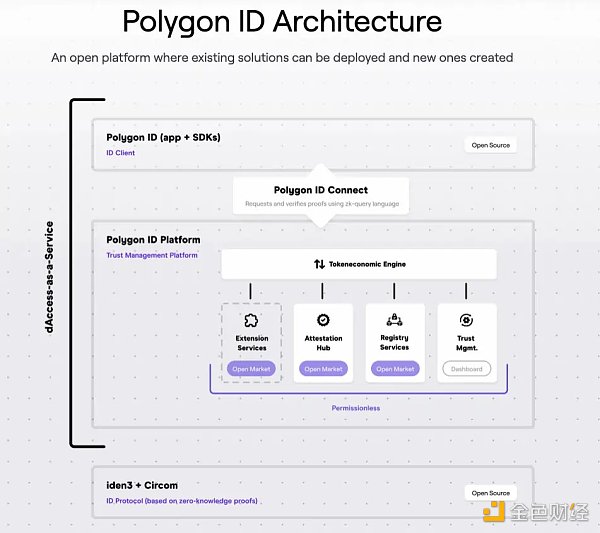
Sismo: Sismo is a platform that utilizes zero-knowledge proofs (ZKPs) and privacy-preserving technologies to empower users with greater authority over their personal data. At the core of the Sismo solution is Sismo Connect, which provides a seamless single sign-on (SSO) process that allows users to selectively disclose personal data to applications while maintaining privacy.
Worldcoin: The project aims to prevent the proliferation of robots and AI by encrypting and storing biometric data. A ZKP is generated by the system to confirm identity when needed. The project has raised concerns among community members regarding the privacy, ethical, and security risks of storing biometric data.
Violet: Violet is an architecture focusing on regulatory compliance and identity infrastructure, providing customization options. It offers standardized methods for issuing transaction-specific compliance credentials, allowing authorized participants to invoke on-chain functions with specific permissions. Violet prioritizes data privacy and sovereignty, avoiding the storage of personally identifiable information on-chain. The described processes and mechanisms are applicable to support various compliance regimes, including identity proof requirements like Humanbound. Violet aims to be an equivalent of OAuth functionality in the Ethereum network.
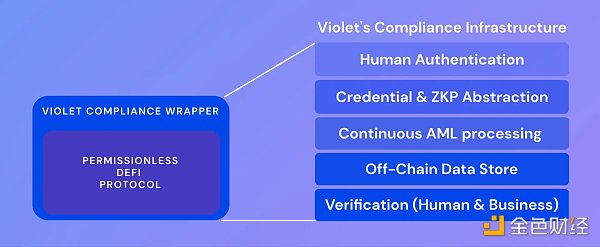
Holonym: Holonym operates as an identity bridge and mixer, hiding off-chain credentials and making them accessible to various web applications on-chain. The integration of this combination of ledgers, privacy-enhancing technologies, and zero-knowledge proofs enables a wide range of use cases, including on-chain identity verification, anti-sybil, digital crime prevention, and non-custodial wallet recovery. These functionalities have implications for the Web3 ecosystem and have the potential to enhance the security and privacy of the internet, addressing issues such as crime, sybil attacks, and data leaks.
Privacy Computing
Decentralized Privacy Computing (DPC) is an advanced paradigm that changes data processing and computation in distributed networks.
• DPC achieves secure and private data processing between multiple nodes, keeping data under the control of its owner and ensuring confidentiality.
• This enables secure collaboration, data sharing, and computation without the need for trust and privacy protection.
In addition, integrating smart contracts can enhance the functionality of DPC, achieving transparent and automatic execution of predefined tasks through cryptographic protocols and zero-knowledge proofs, thereby ensuring strong privacy guarantees.
In the Ethereum network, there are two important protocols focused on achieving this goal: Aztec and Polygon Maiden. In addition, there have been some important research papers in this field, including the following breakthroughs:
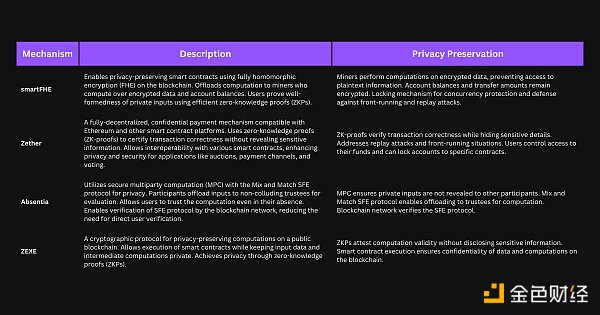 Privacy computing mechanism
Privacy computing mechanism
Privacy voting
Recently, some voting proposals have sparked controversy and discussion in various communities. In some cases, people have tried to bribe or persuade token holders to vote in a specific way. These events have sparked discussions in the blockchain industry about privacy voting.
Nouns DAO: NounsDao, in collaboration with Aragon, has implemented an Aztec <> Aragon solution using Aztec’s zkDSL language Noir. This implementation achieves anonymity and confidentiality of voting and results, eliminating issues such as voting within 11 hours, voting coercion, and herding effects. The proposal leverages Ethereum storage proofs and time encryption to achieve minimal off-chain dependencies. The process involves three stages:
1. Nouns Census uses Ethereum storage proofs to prove ownership without revealing identity.
2. Voting mixing and delay relays to maintain the privacy of multiple Noun holders.
3. Time-Lapse encryption service is used to ensure the fairness of voting and decryption of aggregated votes.
Through this approach, Noun owners can prove ownership, maintain voting privacy, and securely conduct privacy voting.
Cicada: It aims to achieve continuous privacy voting by using cryptographic primitives that have not been used on-chain before. It utilizes time-locked puzzles and homomorphic time-locked puzzles to achieve secure and private voting without counting institutions or other trusted parties.
Cicada is designed to minimize trust, ensure censorship resistance in a blockchain environment, and make it a practical and efficient solution for on-chain privacy voting. Time-locked puzzles allow ballots to be submitted as encrypted puzzles that can only be revealed after a predetermined time, ensuring confidentiality during the voting process.
To prevent vote manipulation, voters must submit zero-knowledge proofs alongside their ballots to prove the validity of the ballots. Cicada also offers the option to combine anonymous voter qualification protocols with it to achieve unlimited ballot privacy.
Privacy games
There is undeniable growth in the expansion solutions for on-chain games. However, it is worth emphasizing again that most of these solutions only utilize the succinctness property of SNARKs. However, the gaming industry has a use case of adding the privacy attributes of ZK to their stack, which can avoid issues such as transaction queuing and improve user experience.
Dark Forest: It is a fantastic game that uses ZKPs to protect privacy. It is a fully decentralized and persistent real-time strategy (RTS) game built on Ethereum.
• The game uses zkSNARKs to create cryptographic fog, allowing players to keep the location and movement of their planets private.
• Players submit commitments and zero-knowledge proofs to prove the validity of their actions without revealing the actual location.
• Players cannot inspect the contract for information about opponents, creating an incomplete information game setting with strategic depth and emerging player behavior.
Privacy DeFi
Another area that requires privacy is DeFi. There has been an increasing number of privacy DeFi applications on Ethereum.
LianGuainther Protocol: Provides users with interoperable, fully collateralized digital assets using zkSNARK technology. It also offers a novel price discovery mechanism for privacy. Users can deposit digital assets from any blockchain into LianGuainther Vaults and then use these zAssets in various DeFi applications.
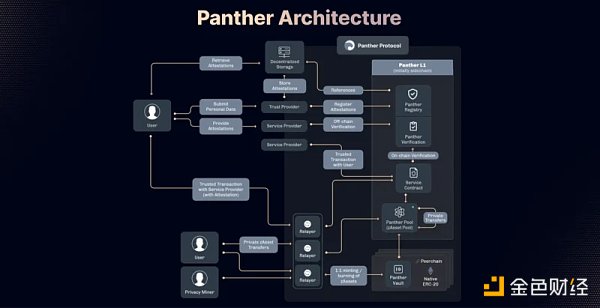 Railgun: Enables privacy smart contract calls on-chain using zkSNARKs without relying on separate sets of layer-two validators or hosted bridges.
Railgun: Enables privacy smart contract calls on-chain using zkSNARKs without relying on separate sets of layer-two validators or hosted bridges.
• By keeping funds on the main chain, Railgun ensures higher security and strong privacy, preventing information leakage or contamination.
• Railgun’s privacy features have potential use cases including private payroll services, MEV advantages for traders, uncensorable donations, anonymous analysis, and compliance with data protection regulations.
ZK ML
One benefit of using zkSNARKs with machine learning algorithms is the ability to infer privacy or sensitive data while preserving privacy. Our Q2 2023 ZK report emphasizes the role of ZK in protecting privacy.
• ZK proofs allow machine learning inference on privacy or sensitive data while proving the accuracy of computations without exposing the data itself.
• Current ZK systems may not be suitable for such systems, and future fully homomorphic encryption (FHE) schemes may be more suitable. Currently, there are no active privacy-preserving ZK solutions applicable to ZKML algorithms.
Conclusion
Ethereum has a strong and active community focused on privacy. However, as the emphasis on scalability increases, privacy has taken a backseat. We may see progress in DIDs and games rather than DeFi or on-chain voting, as the former two use cases would greatly benefit from strong privacy measures, making their value propositions feasible.
We will continue to update Blocking; if you have any questions or suggestions, please contact us!
Was this article helpful?
93 out of 132 found this helpful
Related articles
- The first Bitcoin Sovereign Rollup project Rollkit.
- The New Narrative of Cryptocurrency Investment in a Bear Market Unibot Project Analysis
- Cosmos ecosystem’s living water Entangle and Tenet, the dual heroes of the whole chain LSD.
- Reddit Avatar One-Year Anniversary Layout and Insights Behind the NFT Project with the Largest User Scale
- Worldcoin in the Polkadot ecosystem? Another money-spreading project Encointer analysis
- Quick Overview of Recent Popular DeFi Narratives and Innovative Projects
- Inventory of the 8 old projects of the transformation LSD






